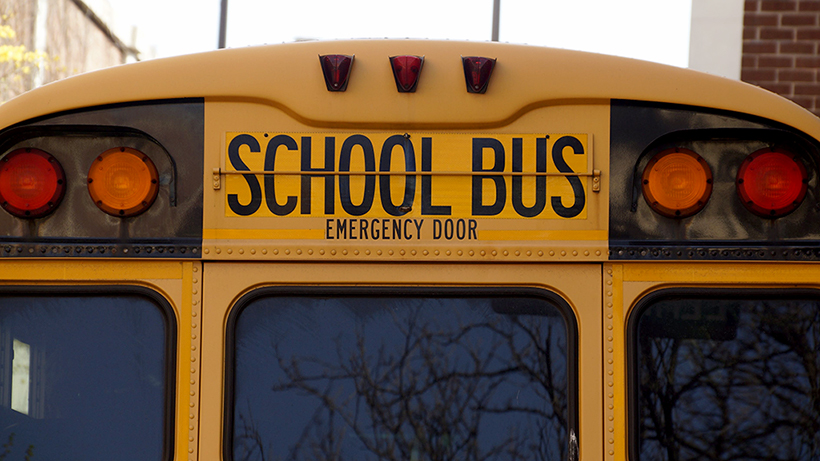Publisher's note: This post appears here courtesy of the Carolina Journal, and written by Dr. Terry Stoops, Director of Regulatory Series.

In 2011, Thom Tillis, Phil Berger, and the Republican leadership in the N.C. General Assembly removed the 100-school school cap included in the 1996 law that authorized the creation of charter schools, which are tuition-free public schools that have more freedom than district-run public schools. Removing the cap, along with providing opportunities for enrollment expansion at existing charters, has led to unprecedented growth in the number of children attending the state's charter schools.
At the end of the 2010-11 school year, the state had 99 charter schools that enrolled around 41,200 children, and thousands of children remained on waitlists, hoping to be among the lucky few selected in an enrollment lottery. The waitlists remain, unfortunately, even though more than 109,200 children currently attend one of North Carolina's 184 public charter schools. As long as parental demand for charter schools seats remains strong, the state must remain committed to granting charters to high-quality and innovative applicants.
Not all agree.
For years, district schools and left-leaning advocacy groups have led the opposition to this expansion. Districts still serve around 80 percent of all North Carolina children, so rumors of their demise are exaggerated. Unlike charter enrollment, however, district enrollment is stagnating or declining, even in areas enjoying population growth. The loss of students to charter schools not only means a loss in revenue for the districts but a weakening of an institution that has been instrumental in reinforcing their expansive vision for government. Yet, in the face of unprecedented competition, districts appear unwilling to compete with public and private alternatives.
Presumably, district school advocates would rather bellyache about charters than offer a compelling reason why parents should select the district schools that they support. Wake County Commissioner Greg Ford recently tweeted that Wake County taxpayers
"will fork over $42,312,228.60 to #charter schools, who cherrypick their students and have absolutely no local (and very little state) accountability." While factors such as enrollment lotteries and the presence of multiple sources of accountability undermine much of his critique, I was struck by his failure to articulate why parents should opt for the Wake County Schools. After all, $42,312,228.60 is following children to charter schools for a reason. Perhaps better understanding those reasons and creating a strategy to address them would keep more children (and dollars) in the district.
PTA parents have used similar appeals to object to the opening of new charter schools in Wake County. Leslie Fielding-Russell, PTA president of Jones Dairy Elementary in Wake Forest,
told the
News & Observer,
"There is plenty of choice. We don't need anymore. We want to keep the funds in our Wake County Public Schools." Fielding-Russell is one of a number of parents who live in northern Wake County and protest the opening of two new charter schools in the area, North Raleigh Charter Academy and Wake Preparatory Academy. Again, there seems to be little regard for why parents are deciding to enroll their children in charter schools. And its parents, not Fielding-Russell, who should decide how much choice is enough.
Attempts to understand parental decision-making vary by district. Each year, the Wake County Schools conducts a districtwide family
survey through Panorama Education LLC, a for-profit analytics company in Boston. The surveys provide insight into families' perceptions of topics like family support, engagement, and school climate, which are used by districts to improve instructional and support services. But it's unclear if these survey results or others are used to determine the factors may be driving parents to leave the district.
Even without surveys, there are some clear sources of dissatisfaction in Wake County. For example, some parents
object to the use of the Mathematics Vision Project curriculum adopted in 2017. Moreover, families may soon face another
round of disruptive student assignment changes. Perhaps unchecked
teacher radicalism will emerge as a source of discontent. Aside from circumstances unique to Wake County, research tells us that parents choose charter schools for a variety of reasons: safety, proximity, specialized programs, and school size. These factors are communicated to parents through a variety of channels, including the internet, social media, and their social networks. Insight into parental decision-making is out there for those willing to look.
It is easy to complain about the proliferation of charters or the money that districts "lose" because of them. It's much more difficult to try to understand the needs of families and make systematic changes to accommodate them. To understand the rise of charter schools in North Carolina simply requires one to be attentive to the voices of ordinary
parents who have made the choice to send their extraordinary children to charter schools.
Terry Stoops in vice president of Research for the John Locke Foundation.


























